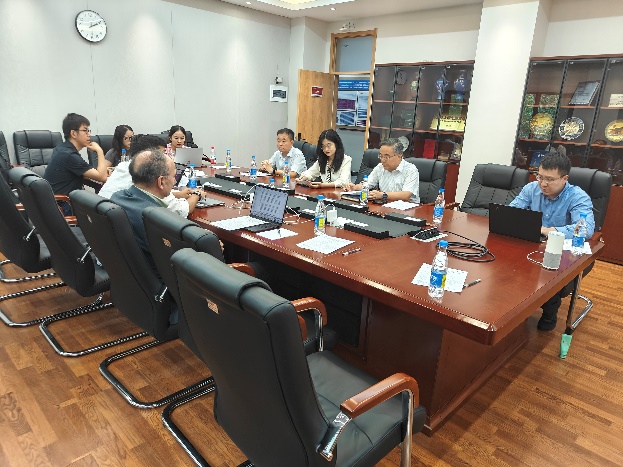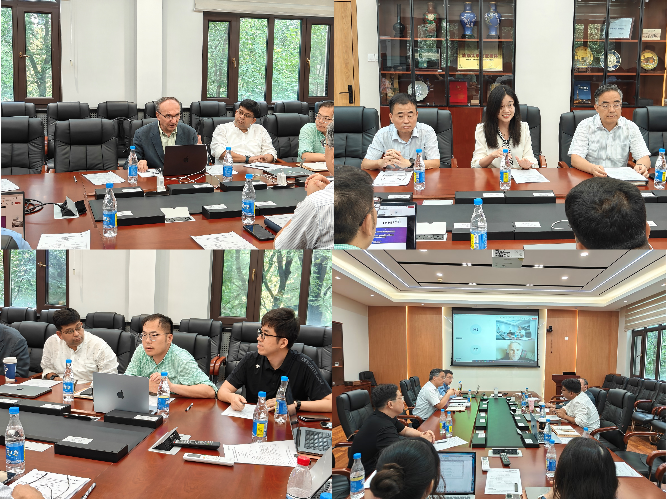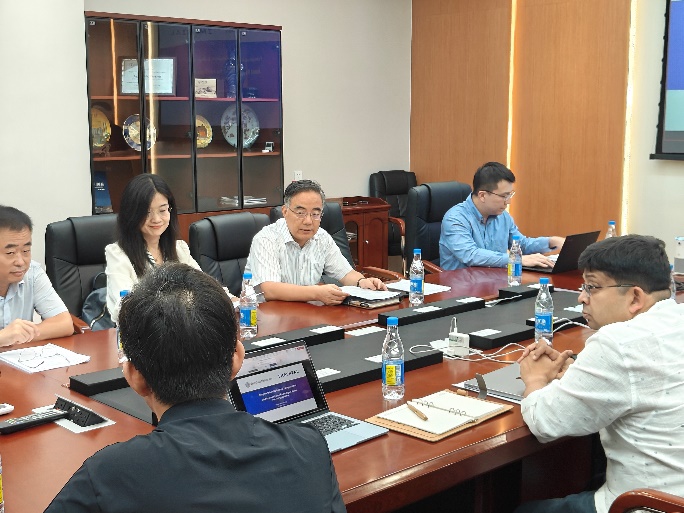On August 28, the 2025 annual work meeting of the Tsinghua University – Imperial College London Joint Research Centre for Smart Power and Energy Systems was held at the Department of Electrical Engineering and Applied Electronics (EEA). The meeting was attended in person by EEA Dean Kang Chongqing, Deputy Director of the Office of International Cooperation and Exchange Wang Xiaonan, Chinese Co-Director of the Joint Research Centre Sun Kai, Chinese Deputy Director Zhang Ning, UK Co-Director Goran Strbac, UK Deputy Director Fei Teng, and Imperial College London Professor Balarko Chaudhuri. Professor Mark O’Malley of Imperial College London, foreign member of the U.S. National Academy of Engineering, participated online.

At the meeting
The meeting was hosted by Sun Kai, Deputy Director of EEA and Chinese Co-Director of the Joint Research Centre. Goran Strbac, Kang Chongqing, and Wang Xiaonan delivered speeches in turn. Sun Kai introduced the establishment of the Joint Research Centre and its latest research achievements, and outlined future collaboration plans.
During the discussion session, both sides conducted in-depth exchanges on future research plans and ways to further strengthen cooperation. Wang Xiaonan suggested leveraging the strong platform of the Joint Research Centre to further expand and promote collaboration with other departments of Tsinghua University and Imperial College London related to power and energy. Mark O’Malley highly praised the Centre’s leading role in frontier research on power and energy systems and recommended strengthening connections and collaboration with international organizations in the field to jointly promote the vision of a green and low-carbon power system transition. Goran Strbac stated that the UK team will continue to enhance the level of cooperation, including high-level talent training and joint high-quality publications, and actively facilitate the signing of a new phase of the cooperation agreement.

In-depth discussion on strengthening collaboration
Following the discussions, Imperial College London postdoctoral researcher Pang Qingwen and Tsinghua University doctoral student Jia Hongyang delivered academic presentations titled “Unlocking the Flexibility Potential of Electricity Interconnectors: Enhancing Market Participation and System Stability” and “Voltage Stability Constrained Power System Optimization: A Constraint-learning Method”, respectively.
In his closing remarks, Kang Chongqing expressed gratitude for the support from the leadership of Tsinghua University and Imperial College London and colleagues from related departments, and outlined expectations for further enhancing bilateral cooperation.

Closing remarks by Kang Chongqing
The Tsinghua University – Imperial College London Joint Research Centre for Smart Power and Energy Systems was established in March 2019, and its second cooperation agreement was renewed in December 2022. The Centre conducts collaborative research in areas including new-type power system planning, integrated energy systems, low-carbon energy transition, and power electronics equipment. It has undertaken two international cooperative projects, published over 30 joint papers, and co-trained more than 50 doctoral students and postdoctoral researchers. Based on the Joint Research Centre, in 2023, a Ministry of Education International Cooperative Laboratory for New-type Power Systems was approved. The successful convening of this meeting has played an important role in promoting the development of the Centre. Tsinghua University and Imperial College London have strong complementary strengths in smart power and energy systems research, and the Joint Research Centre will continue to leverage these advantages to jointly advance high-level research in the power and energy field.

















 News & Events
News & Events